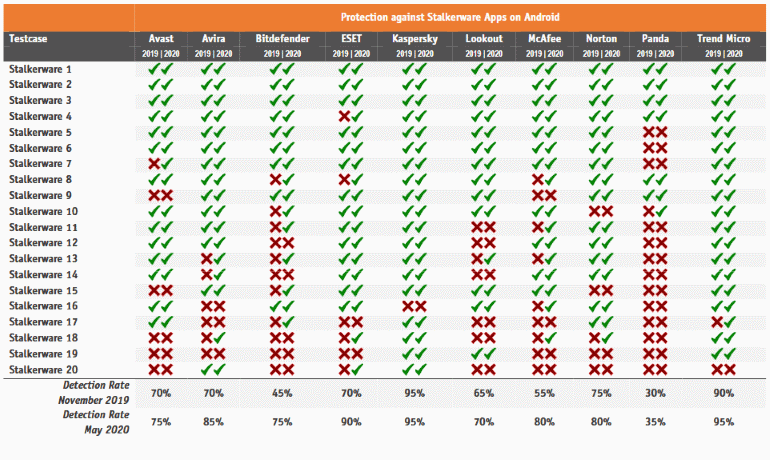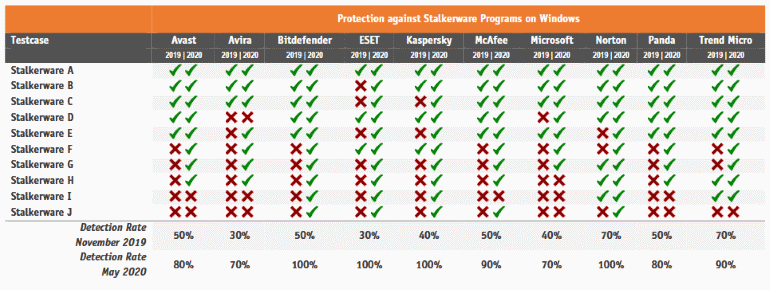Analysts from the independent lab AV-Comparatives and the Electronic Frontier Foundation (EFF) found that antiviruses on Android and Windows began to detect stalkerware better.
Let me remind you that the term stalkerware usually refers to commercial spyware, which is positioned as legal. With it, you can access personal data stored on smartphones and tablets of other users.Stalkerware often masks itself as parental control applications, employee monitoring software, and even corporate remote access tools.
Such software is usually used for secret monitoring of people, including domestic violence victims, and therefore often carries serious risks for those on whose devices it is installed”, – write experts EFF.
The researchers published a report, according to which the study of this issue was divided into two stages: the first was in November 2019 and the second in May 2020. To conduct the tests, the researchers selected 20 samples of stalkerware for Android and 10 for Windows, basing on the popularity of these products in the United States.
As it turned out, 10 mobile anti-virus applications for Android and 10 anti-virus products for Windows “learned” to detect some of the most common types of stalker software today. Thus, many antivirus companies have significantly improved their performance from November 2019 to May 2020.
Analysts from AV-Comparatives say that last November the level of detection of spyware apps for Android ranged from 30% to 95%, but two products detected less than 50% of test cases.
In the same periodfor Windows, the overall detection rate for stalker applications was low even compared to Android: the best result was only 70%, and only two security products reached that level”, — said the EFF researchers.
Six months later, in May of this year, most products (for both Android and Windows) significantly increased their stalkerware detection levels. So, 9 out of 10 products for Android now detected from 75% to 95% of malicious samples.
All products for Windows improved their performance by at least 70%, and four programs did achieve a 100% result.
Experts say that the overall results of this study are encouraging, as they show that the cybersecurity industry is finally ceasing to tackle stalkerware. Let me remind you that the Electronic Frontier Foundation has been pushing the industry to classify such products as malicious since 2018 and is trying to inform users about this threat.
Since 2018, more and more anti-virus companies have been adding rules to detect spyware into their products, and some of them have even joined Coalition Against Stalkerware, a nonprofit group that has a goal to raise awareness of this threat.
Let me remind you that we also talked about stalkerware MonitoMinor that traces activity in Gmail and social networks.


